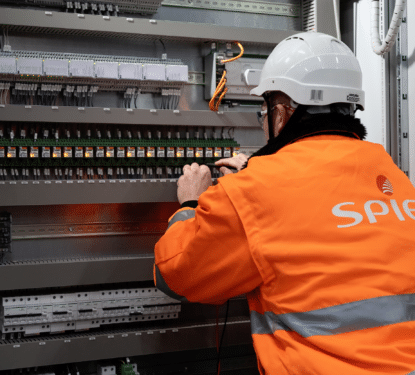It's been a busy start to the year for Honeywell. In less than 4 weeks they have acquired Xtralis, a leading manufacturer of advanced fire detection products, and are looking to sell their Building Solutions Group. Add to this the possibility that a mega merger with UTC, to form an industrial power house, may not yet be off the table.
The Honeywell Building Solutions business is thought to be worth between $3 billion and $4 billion. It provides integrated Building Management Systems and other services to commercial buildings globally and had revenues of $4.6 billion in 2015.

So what do these 3 manoeuvres tell us about Honeywell’s strategy to shape its future through merger and acquisition? The first is part of an ongoing policy over the last 14 years to strengthen its core businesses through buying leading edge technology products, whilst at the same time divesting its low technology and consumer products. The UTC play is to take one bold move to become an industrial power house in Aerospace and Building Services Technology.
Divesting the Building Solutions Business does not at first appear to be in accord with this long term strategy. This business is built around a number of software packages that provide a platform to deliver an optimized building performance and improved functionality and analytics across all Building Automation (BAS) services.
This is hi-tech and high margin business and currently is a major plank in deliver Smart Buildings. So why would you want to sell that if your objective is to become the world leader in building services technology?
Our Recent Report “The Transformation of BAS to BIoT” shows that in order to deliver a Building Internet of Things (BIoT) the level of connectivity needed to fully automate buildings will only be achieved by a massive technology input from the IT community and drastic changes to contractual procedures.
BIoT for complex Smart Buildings will be managed through 4 main contacts and of these 3 will need to be handled by IT and network communications manufacturers and their system integrators. BAS Services hardware will be delivered by the present product manufacturers and installed by their system integrators. However the Contract for IoT Data Services will require Big Data software and skills to further automatically fine tune the buildings performance.
So if you want to be in the mix for these lucrative contracts you need to have expertise in Data Analytics. Currently the big controls conglomerates like Honeywell, Siemens, Schneider Electric and Johnson Controls do not have this capability. Could this be the reason why Honeywell would like to sell their Building Solutions Business because Big Data and IoT Data services will eventually replace it?
[contact-form-7 id="3204" title="memoori-newsletter"]
However It should be remembered that the existing building stock comes in many different types and sizes. It can be single buildings, multiple buildings on one site and many buildings comprising large estates. A Top down approach would not work so well when retrofitting BIoT into existing Smart Buildings because it would need to strip out all the existing control systems for each service and start again.This is not practical for most building owners and is unlikely to be cost effective at this stage. So the present building solutions software will have a demand for quite a few years to come.
So converting existing Smart Buildings to BIoT is going to be a major challenge and will require a different procedure with more input from the BAS suppliers because it will require integrating heterogeneous networks working on different standards and protocols into a single network structure.
In the meantime we will therefore need to find ways of integrating data sources in multiple formats for these existing buildings. The good news is that a new set of building software products are starting to come onto the market that are designed to provide an alternative to ripping out all the existing systems.



